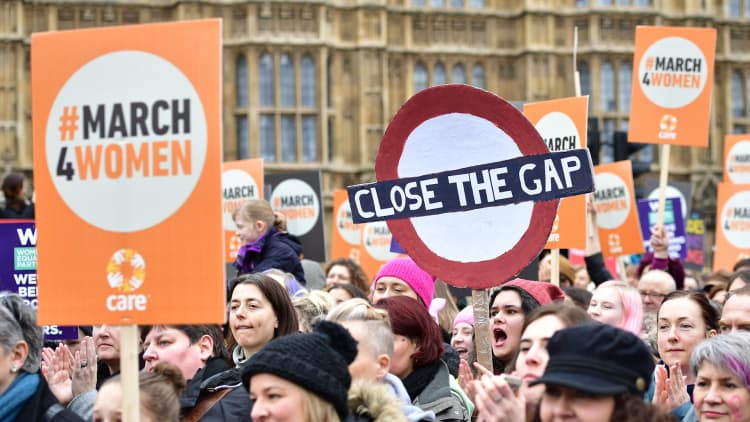Attending an elite school like Harvard or Columbia substantially boosts women's future earnings, but not men's.
Women graduates from elite schools made 14 percent more money than women with comparable entrance-exam scores who attended less selective schools, according to a working paper published by the National Bureau of Economic Research that looked at women entering college in 1976. The study found that men earned roughly the same, regardless of where they went to school.
A woman who graduated from a more selective school was nearly 4 percent less likely to end up married two decades later than a woman who was accepted at a similar school, but chose to attend one where average SAT scores were 100 points lower. That difference in marital status has a huge impact on lifetime earnings potential, too. The married women were about 19 percent less likely to work outside the home overall.
Researchers suspect that the edge women get from attending an elite school reflects different patterns of work and marriage.
"I think the key take-away is that attending an elite college does increase women's earnings overall, and this happens almost entirely because they become more likely to work and less likely to marry," Elliot Isaac, a Tulane University professor and an author of the study, told CNBC Make It.
Amalia Miller, a University of Virginia professor and another author of the study, told CNBC Make It that for women, attending a more selective college did not lead to greater skills or productivity. Rather, it "changed their life course, in a direction of investing more in their personal development and labor force participation and less in marriage and time at home."
Female graduates of elite colleges not only marry later, but are more likely to stay in the workforce after they get married and choose a spouse with a more advanced degree, the study showed.
Researchers suggested that the reason women who attended selective schools are less likely to be married in their late 30's is because these women are setting a higher bar for their future spouse. They said that when these women do get married, they're more likely to be married to someone with an advanced degree.
"The marriage effect is more likely to be driven by women setting a higher quality threshold for partners. Setting a higher quality threshold for partners can also explain the decreased likelihood of marrying among women who attend elite colleges," Isaac said.
This could help explain why top schools continue to attract record numbers of applicants, despite studies showing their unimpressive impact on future earnings.
Other studies have found that there is some cost in the marriage market for successful women. For instance, University of Chicago Booth School of Business economist Marianne Bertrand found that couples were less likely to marry if the woman out earned the man, and they were more prone to break up if she did.
Linda Barrington, the associate dean for outreach and sponsored research in the ILR School at Cornell University, said that these findings are partly because people of similar socioeconomic status tend to marry each other.
"People tend to circulate with people in their own class," Barrington told CNBC Make It. "You have to look at the difference. Is it because men won't marry women who earn more than them – an ego concern – or is it that women are choosing to not 'marry down?'"
The recent analysis was based on a 1996 survey of the graduating class of 1976 and did not account for race or class. However, a 2017 study concluded that low-income students, regardless of gender, benefit from attending more selective schools.
Like this story? Subscribe to CNBC Make It on YouTube!
Don't miss:
A new study suggests women earn about half what men earn
A historic number of women were elected in 2018—these four are expected to run for president in 2020



